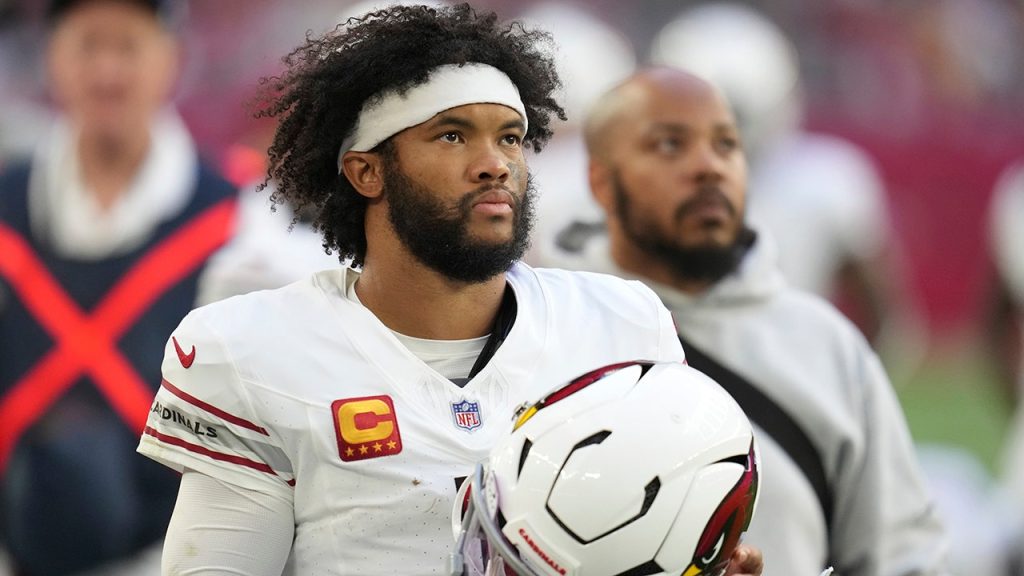The Arizona Cardinals’ Playoff Pursuit Encounters a Chilly Challenge in Charlotte
The Arizona Cardinals, fresh off a much-needed victory against the New England Patriots, are setting their sights on a late-season playoff push. However, their upcoming clash with the Carolina Panthers presents a challenge beyond the gridiron: the unfamiliar chill of a North Carolina winter. While not as extreme as the frozen tundras of Green Bay or Buffalo, the anticipated temperatures in the 30s and 40s represent a significant departure from the desert warmth of Arizona. This climatic shift has the potential to become a factor in the game, raising questions about the Cardinals’ ability to adapt and perform in less-than-ideal conditions.
Quarterback Kyler Murray, the linchpin of the Cardinals’ offense, initially expressed indifference towards the cold weather, having experienced it in the past. However, his nonchalance quickly evaporated upon learning the specifics of the forecast, eliciting a candid and relatable reaction that resonated with many who dread the winter chill. Murray’s initial dismissal of the cold underscores a common perception that weather impacts performance only at extreme levels. Yet, even moderate temperature drops can influence players’ comfort, dexterity, and overall effectiveness on the field.
The Cardinals’ predicament highlights a recurring narrative in the NFL: the perceived vulnerability of warm-weather teams in cold climates. This narrative gained traction once again after the Miami Dolphins’ loss to the Green Bay Packers in December. The Packers’ safety, Xavier McKinney, suggested that the Dolphins’ performance was hampered by the cold, reinforcing the idea that warm-weather teams lack the physiological and psychological preparedness to compete effectively in chilly conditions. While such claims often oversimplify the complexities of athletic performance, they underscore the importance of acclimatization and mental resilience in adverse weather conditions.
For the Cardinals, the challenge transcends mere discomfort. Their playoff hopes hang precariously, requiring a perfect storm of victories in their remaining games and a fortunate turn of events in their division. The added pressure of performing in unfamiliar weather could exacerbate the already daunting task of winning out the season. The cold becomes not just a physical hurdle, but a potential psychological barrier that the Cardinals must overcome to keep their postseason aspirations alive.
The anticipated cold weather in Charlotte sets the stage for a compelling matchup between the Cardinals and the Panthers. It will be a test of the Cardinals’ resilience and adaptability, showcasing whether they can transcend the limitations often associated with warm-weather teams playing in the cold. The game becomes a microcosm of the broader challenges faced by athletes who must perform at peak levels regardless of the environmental conditions.
The Cardinals’ challenge is two-fold: conquer the tangible effects of the cold and overcome the psychological hurdle it presents. The cold may impact their grip on the ball, their throwing motion, and their overall mobility. Moreover, the mental burden of adjusting to the unfamiliar conditions could further complicate their efforts. They must demonstrate not only physical toughness but also mental fortitude to silence the narrative surrounding warm-weather teams and solidify their playoff contention. The game against the Panthers offers a critical opportunity for the Cardinals to prove their mettle and defy expectations in the face of adversity, both climatic and competitive.

